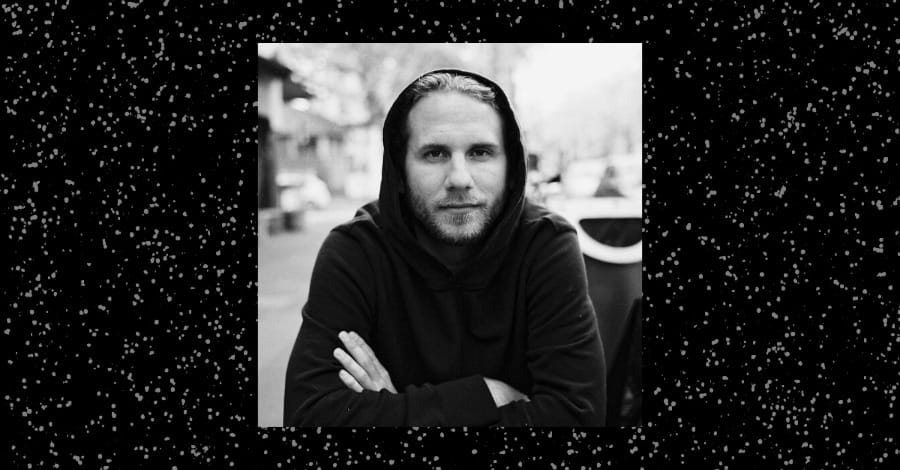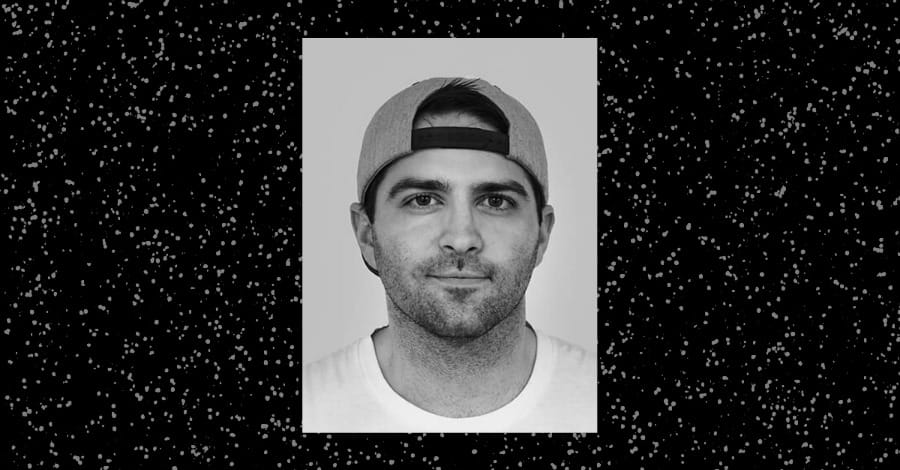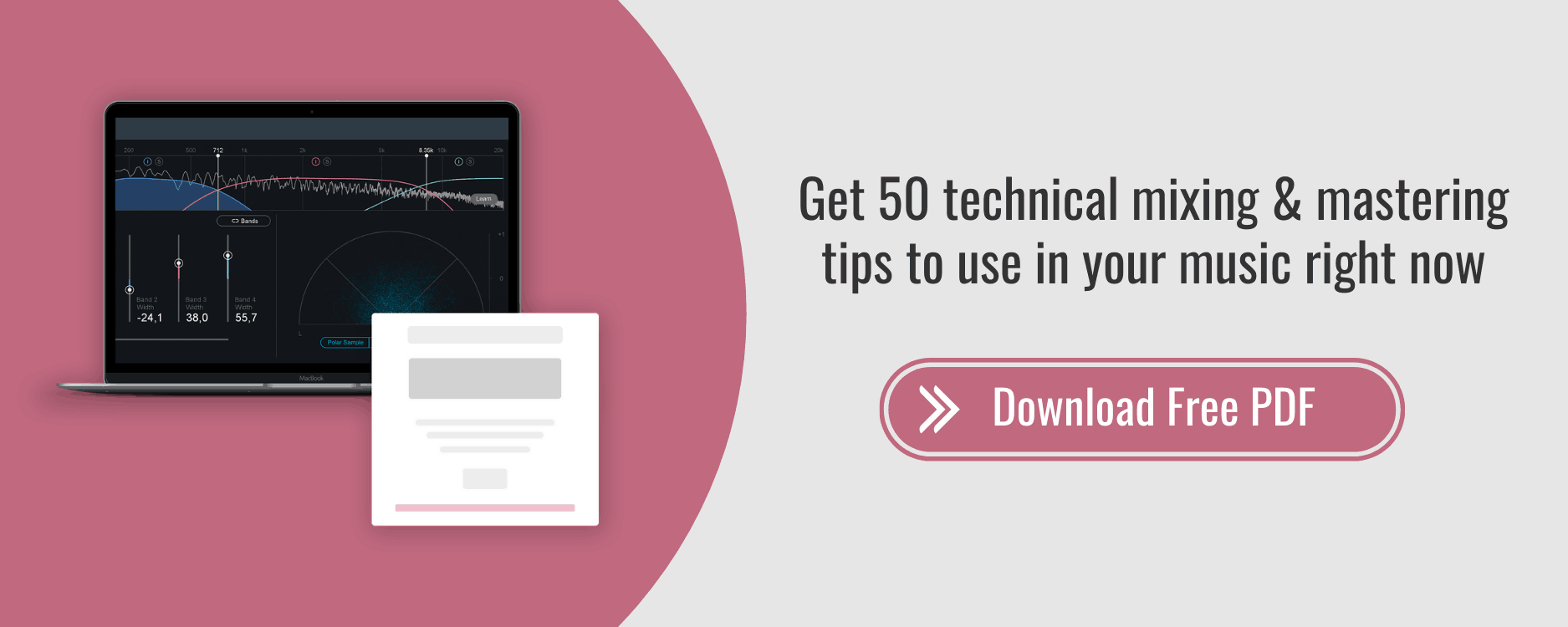Jobs In The Music Industry: 9 Case Studies To Grow Your Career
“Music is one of the toughest industries, so I respect everybody who has travelled any distance, come far in this music business and achieved anything”
— G-Eazy
Everyone wants a job in the music industry, but few actually take the time to learn what types of jobs are in the music industry. But the sooner you can identify what types of opportunities are out there, the earlier you can start taking advantage of the opportunities that present themselves while you chase your dreams of making a sustainable life in music.
Because building your artist project involves much, much more than just making music. Social media presence, signing record deals, playing shows, doing photo shoots, or getting your music heard online are all unique and professional skillsets in their own right. If learning how to do this all yourself sounds like a huge amount of work, that’s because it is! Sometimes, you simply can’t do everything yourself...
While it is important to be your own advocate and be proactive about working on your own social media presence, trying to get yourself gigs, and releasing music on streaming services, there are people out there who specialize in many of these other tasks.
And when the time is right, working with them will be essential to the success of your career. And in this article, I will be spelling out exactly who nine of those people are.
Do I Need A Team?
At a certain point, you’ll want to assemble your team. But most producers think that they need a team way earlier in their career than is actually necessary. I said above how being your own advocate is necessary, and this is especially essential during the early stages of your career. The last thing you want is too many proverbial chefs in the kitchen dictating your career before you've even defined yourself as an artist.
But when it's time to make your team, expect it to be made up of people who work with you as an artist to help you grow your vision as much as possible.
Why should you assemble a team? Because at the end of the day, your music is a business — and right now, you’re most likely in the start-up phase! Like any start-up, there comes a time when the founder simply can’t do everything themselves. Delegating certain tasks allows the founder to focus on the important stuff. In your case, that means you get to focus more on making music, and other people on your team handle other tasks.
So let’s get to it: these are the nine people you need on your team.
Music Industry Job #1: Artist Manager
What Does A Manager Do?
A manager makes big-picture decisions to guide the artist’s career, helping the artist stay focused on the main creative aspects of their career.
They often serve as a mediator between the artist and record labels, booking agencies, promoters, and many of the other music industry jobs listed in this very article. Sometimes, managers will help with day-to-day tasks, such as answering emails, making social media posts, and even helping the artists book flights for their gigs.
It goes without saying that a good manager rely on amazing leadership and management skills that help streamline the artist's life and career.
How Much Does The Artist Pay The Manager?
A manager typically takes a percentage of all the revenue the artist receives, but industry standard usually ranges from 10-20% of all the artist's total revenue. Obviously, the salary of a manager will vary depending on the size of the acts that are in their portfolio, but managers of developing artists can expect to make between $30k - $200k accordingly to the 2016 edition of 'Music careers Dollars and Cents' published by Berklee College of Music.
When Should You Get A Manager?
As much as you might feel that you need one, you probably don’t need a manager right when you start producing music. A good rule of thumb is to wait for managers to come to you once you’ve started to see some success — if they need you more than you need them, you’ll be able to ink a better deal.
But even then, artists should always be wary of signing management deals from managers they don't already have a previously established relationship with. Just be sure to work with people you like and trust, and you will be putting a lot of your career in the hands of this person.
Case Study:
Adam Sellers works for Involved Management and manages artists including Ben Bohmer and Yotto. He has aided these artists’ day-to-day business for several years, helped establish Yotto’s label Odd One Out, and has grown these artists into two of the biggest names in deep and progressive music.

Adam Sellers (Manager of artists like Ben Bohmer and Yotto)
Music Industry Job #2: Tour Manager
What Does A Tour Manager Do?
A tour manager travels with the artist to all their shows. They often coordinate all transportation, hotels, and venue logistics, and they ensure that the technical setup at a venue meets all necessary specifications. In short, they make sure the artist gets to their shows and performs with as little stress as possible.
As I am sure you can image, this is way easier said than done. But the best tour managers can juggle hundreds of responsibilities without even breaking a sweat. This is because they know the industry like the backs of their hand, and can anticipate the hiccups and roadbumps before they become an issue.
How Much Does The Artist Pay The Tour Manager?
A tour manager is typically paid a day rate, plus expenses. This means that the artist covers all the expenses of the tour manager on the road (flights, hotels, etc), in addition to paying a daily fee for their services.
Much like the aforementioned management position, this means that the pay scale can range wildly (usually between $2.5k-$10k a week!).
When Should You Get A Tour Manager?
Only get a tour manager once you are actively touring and can afford to get one. Many big DJs don’t use a tour manager, but for artists playing hundreds of shows a year, a tour manager is an essential team member that helps make constant touring sustainable for the artist.
Case Study:
Luke McNees is the head tour manager for Diplo and Major Lazer, coordinating hundreds of shows per year for the groups and employing several assistant tour managers to assist him. His team’s responsibilities include everything from arranging police escorts to venues, testing DJ equipment before Diplo steps on stage, planning meals, and greeting the artists’ guests at performances.

Luke McNees (Head Tour Manager For Diplo/Major Lazer)
Music Industry Job #3: Booking Agent
What Does A Booking Agent Do?
An agent works with an artist to coordinate all performances for said artist. Agents typically have a network of promoters in various cities, and they negotiate with the organizers of events to book the artist they represent. An agent’s goal is to maximize touring revenue while simultaneously growing the artist’s fan base in many cities.
Essentially, their primary goal is to get the artist out of the studio and onto the stage. The booking agent often works directly with the artist manager to plan out tours, identify different markets in which the artist is most popular, and helps determine the artist schedule overall.
How Much Does The Artist Pay The Agent?
The artist pays the agent a percentage of all the revenue generated from performances only. This generally ranges from 10-15% of all performance revenue equity; somewhere between $20k-$50k for agents booking developing artists.
When Should You Get An Agent?
You should get an agent when you are starting to get interest from promoters in performing in markets outside of your home city. If you are only playing locally, try to book yourself and develop personal relationships with promoters. Agents are helpful when you need to negotiate deals with promoters in other cities and break into new markets.
Case Study:
Paul Gongaware is an electronic music agent at ICM Partners, representing artists including Slushii, Tom & Collins, and Anden. He was formerly an agent at William Morris, where he looked after artists including Marshmello. Paul specializes in North and South America, where he knows event organizers in hundreds of cities and works with them to book his artists.

Paul Gongaware (Agent for artists like Slushii and Anden)
Music Industry Job #4: Creative Director
What Does A Creative Director Do?
Creative directors help you create a brand around the music. What do you — the artist — look like? What impression do fans get when they go to your Instagram? What’s your logo like? How about live show visuals, your wardrobe, and your bio on your website? Creative Directors expand upon your sound to create a full experience for fans.
How Much Does The Artist Pay The Creative Director?
It depends. Some creative directors are paid for one-off projects, like designing a logo and creating live show visuals. Others are more “in-house” and are paid a retainer or even get equity in the artist brand to be an on-call designer for various projects.
But overall, creative directors' salaries range from $20-$80k.
When Should You Get A Creative Director?
As soon as you can afford one. Creative Directors are not cheap, but there are a few things we recommend spending money on as soon as possible — some high quality press photos of yourself that you can use for social media pages, and a logo. Building out your artist image beyond just the music is an essential step for your growth.
Even hiring a freelance creative director to help create a vision early on as part of a one-off project is worth the investment, as it gives you a brand identity to work towards while perfecting your music and honing in on what makes you unique.
Case Study:
Darrius Medina founded Lit Creative, a creative studio that has worked on projects including live visuals for A$AP Rocky and music videos for Aluna. The company holds collaborative discussions with artists to develop a creative vision and ultimately delivers final visual products to add new dimensions to the artist’s music.

Darrius Medina (Founder of Lit Creative)
Music Industry Job #5: Publicist
What Does A Publicist/Marketer Do?
Publicists, PR Agents, and Marketers (all mostly interchangeable terms) help get an artist additional press, exposure, and streams. Publicists usually have networks of blog writers and playlist owners that they “plug” to try to get you some press and plays on a release. They can also help coordinate release campaigns, which includes making a calendar of social media posts, developing content, and advising on best practices for a release strategy.
Publicists are communications experts, so skillsets like writing, speaking, and people skills are essential from the start as any good publicist must always first be a natural storyteller.
How Much Does The Artist Pay The Publicist/Marketer?
Publicists are typically paid for one-off jobs. Sometimes, there can be a variable scale for how much they are paid — for example, they have a flat rate, but if they get you a feature in MixMag, it might cost a little extra. This ranges anywhere from $500-$10k a month.
When Should You Work With A Publicist/Marketer?
Rarely, usually only on big releases or other major announcements. It is probably not money well spent to hire a publicist for every release. But, hiring one to announce a major project like an album, larger EP, rebranding of a project, or major single can be helpful. There are diminishing returns to what publicists can provide — once you get the first MixMag feature, the second one becomes less valuable to your project.
Case Study:
Andrew Boon works as a freelance marketer and has coordinated release campaigns for artists including Rufus Du Sol, Hardwell, and Yotto. He previously worked in-house for the labels Anjunabeats and Anjunadeep.

Andrew Boon (Freelance Marketer/Brand Strategist)
Music Industry Job #6: Promoter
What Does A Promoter Do?
Promoters produce events. A promoter is someone who hires an artist to perform, and then sells tickets to fans to see the artist. There is a promoter behind virtually every concert you’ve ever been to.
But don't think that promoters only make money on ticket sales. Oftentimes they get a percentage of all bar sales the venue makes, and some of the bigger promoters rent out entire venues raking in massive profits from everything from ticket sales to coat check.
How Much Does The Artist Pay The Promoter?
The artist does not pay the promoter (directly). The promoter gets paid by making a profit from the show they’ve booked the artist for. However, there are predatory promoters who will ask artists to pay them to perform in exchange for “exposure” — it is almost NEVER a good idea to work with these promoters despite every city always seemingly to have a handful of promotors who work like this.
When Should You Work With Promoters?
Begin working with promoters as soon as possible; full stop.
These are the people who will book you for your first gigs, help you make fans, and get you paid. Promoters in different cities know each other, too, so having good relationships with the promoters at home can help you get bookings in other markets.
On the flip side, if you burn a promotor in your home city by being rude or unprofessional, rest assured he will tell his promoter friends in neighboring markets which makes getting booked elsewhere that much harder. This is NOT a lesson you want to learn the hard way.
Case Study:
Leo Himself is the main electronic music promoter in Minneapolis, running the company Dance Agenda. When he books larger artists to perform in the city (recent shows include Jerro and Dom Dolla), he’ll always book several local artists to open up the night. In larger cities, there are often several main promoters who all book local artists for opening slots each weekend.

Leo Himself (Owner at Dance Agenda Minneapolis)
Music Industry Job #7: A&R
What Does An A&R Do?
A&Rs (Artists and Repertoire) work at labels and choose the music that will be released on the label.
Often, they will work with an artist to help finish the artist’s music before signing it to the label and turn a great demo into a phenomenal release. Even though a label A&R isn’t formally a member of your team, they are often an essential sounding board for creative ideas and have as much input on the artist’s creative direction as anyone else.
Average A&R's will simple accept or reject your demos, but the truly amazing ones will help give valuable feedback and insights into the direction of your music and artist project as a whole.
How Much Does The Artist Pay The A&R?
The artist doesn’t pay the A&R. The A&R is paid by the label they work for.
But adding on to this little bit; oftentimes if you've released on single label consistently, moving up into an A&R position at said label can be a great way to get your foot in the door and start building up some industry experience (if that is the direction you are wanting to go of course).
When Should You Work With An A&R?
As soon as possible! I advocate for sharing your music early and often. A&Rs will help you improve your music and ultimately get it out to a larger audience through label releases.
Even if you music doesn't get signed to the label that they work at, sending demos to them can be a good way to keep your name in their ear. A&Rs want to invest in artists that are constantly improving, and sending new and better demos can be a great way to show them you're committed.
Case Study:
Adrian Alexander is a producer who has also worked as an A&R for several labels. Currently, he is an A&R for Anjunabeats. He works with both established label artists and new signees to develop music for the label, coordinate release schedules, and manage the overall sound and musical direction of the label as a whole.

Adrian Alexander (A&R Director at Anjunabeats)
Music Industry Job #8: Educator
What does an Educator do?
Educators, well… educate. These are the folks that amass all the music production knowledge out there and make it accessible to artists. Educators are often overlooked by many artists who think they’ve got it all “figured out” — it is a critical mistake to think you don’t need help learning more about music production.
Just like how doctors take classes throughout their careers and college professors always read the latest books, working with educators like our team at the Hyperbits Masterclass to stay up to date on the tools and techniques of making music is essential.
How Much Does The Artist Pay The Educator?
Educators are typically paid for one-off services, such as a lesson or a masterclass. Some products are cheap, while bespoke 1-on-1 training and high-quality masterclasses can cost thousands of dollars.
When Should You Work With An Educator?
Start today and never stop! The most successful people in any field are lifelong learners, you should be too.
What I personally think is so cool about music is that there is absolutely no cap on how good you can get at it. So striving to be the best is a lifelong pursuit that will keep you busy from now until the end of time if you let it. It's legit why I made my Masterclass come with lifetime access, because I'm still learning high-level production tricks that would be a disservice not to update my courses with. And when I learn them, so do my students.
Case Study:
Our beloved Serik has educated nearly 1,000 people through the Hyperbits Masterclass. He’s taught both new producers and Grammy-winners (seriously…), offered to mix and master services, and even done some 1-on-1 lessons. Our team works to assemble an amazing knowledge bank on music production so you — the artist — don’t have to.

Serik Slobodskoy (Founder at The Hyperbits Masterclass)
Music Industry Job #9: Tastemaker
What Does A Tastemaker Do?
Ah yes, the ever-elusive tastemakers — these are the people who make or break careers. Tastemakers are the people who fan trust to tell them who has the best music. Tastemakers come in many shapes and sizes — think Pete Tong on BBC Radio 1, the curators of Spotify playlists, or the owners of major electronic music Instagram accounts.
How Much Does The Artist Pay The Tastemaker?
This one totally varies.
Sometimes, nothing! Many tastemakers simply find the best music and pass it along to their followers. Others offer “payola” services, where an artist pays for exposure — for instance, you might pay the curator of a Spotify playlist to get the top spot in their playlist for a week. All of this completely depends on the tastemaker.
Be careful who you give money too in this area though, as there are a ton of scam artists out there that promise the promotional world but then never deliver. All marketing is a risk undoubtedly, but that still doesn't mean you shouldn't do your resource and put your best foot forward when it comes to investing in promotions, tastemakers, and influencers.
When Should You Work With A Tastemaker?
As early and as often as possible. People like to support their friends — if you’ve been working with a tastemaker for a long time, it’ll only be easier for them to support your music in the future. I recommend trying to network with tastemakers of different varieties (DJs, playlist owners, social media influencers) as much as possible.
Also, becoming a tastemaker can be a good way to build up the amount of value you can offer other artists in turn. Investing a few hundred dollars into building up a playlist on Spotify can help you rub shoulders with artists bigger than you who are wanting to get their music on your playlist.
Just some food for though...
Case Study:
UOAK owns a family of Spotify playlists which collectively have about 100,000 followers. Producers send him music directly to be considered for the playlists, and he chooses which music to post to ultimately relay to his followers. For the artists, this is a great way to reach fans, get more plays, and ultimately make more money through streams.

UOAK (Freelance Spotify Playlist Curator)
Final Thoughts Jobs In The Music Industry
It can be enticing to try to add people to your team today. But the truth of the matter is this: nobody will ever care more about your music than you will. This means that you should try to do it all yourself until you’re simply so busy that you can’t — the last thing you want is a manager or agent who isn’t pulling their own weight. In the end, work with people you trust and believe in (and believe in you!) and you’ll set yourself up for success.
It's important to remember that making dope music is the easiest way to earn your seat at the table when dealing with all of the music industry jobs mentioned above. If you are wanting to start producing music that is as good, if not better, than the artists you look up to, the Hyperbits Masterclass is the perfect solution. Enroll instantly, and start leveling up your music today.
Ready to make your mark in the music industry? Explore exciting Music Job Opportunities on Jooble!
These Might Also Interest You:
7 Must-Know EQ Tips with Fab Filter Pro-Q2




